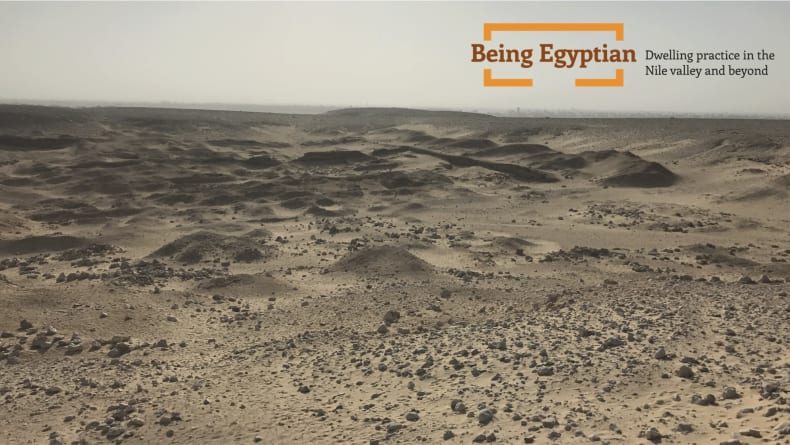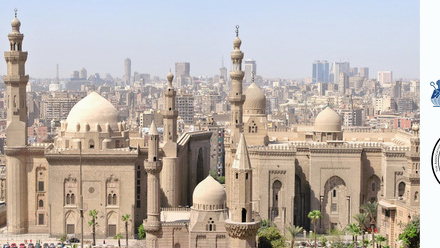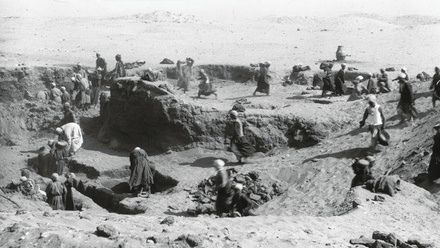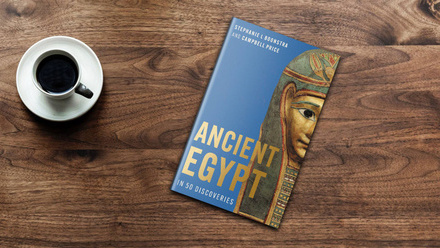Being Egyptian: A new collaborative event series

The Egypt Exploration Society is delighted to be collaborating with Being Egyptian, an initiative of Dr Linda Hulin (University of Oxford) and Dr Thais Rocha (University of Oxford and University of São Paulo). Together, we will host a series of seminars accessible to students, researchers, and interested audiences exploring the experiences of ancient Egyptians in their homeland and in other parts of the Egyptian domain. For details about Being Egyptian and the seminars, see the information below.

This seminar series explores the experiences of ancient Egyptians in their homeland and in other parts of the Egyptian domain. We will explore the interplay between material culture and different landscapes and socio-cultural settings. The multiple aspects of house experience will be questioned and compared in different parts of the ancient Egyptian world: the Levant, Nubia and the Nile Valley in the New Kingdom. This was a time when Egyptians intensively engaged with her neighbours, as traders, administrators and members of the army and we find them living in Nubia and in the Levant. Looking at their living spaces we gain an idea of how they thought about themselves and the place in these different worlds, for the house is the primary locus of social experience, a place where different cultures can be embraced or excluded.
We start from the assumption that the built environment—and the surrounding landscape—both shapes and is shaped by those who dwell in it. This being the case, how do we deal with variability in the material record—between for example, houses in the Nile valley compared to those in the Delta, or in the Jezreel valley, or in Nubia? If this variation is in part a response to the local socio-economic and physical environment, what are the commonalities that relate to the Egyptian-ness of being? Through those questions we can interrogate the utility of typologies and the value of terms such as hybridity, emulation and adaption, which are frequently applied to material culture rather than social practice. Are material and cultural adaptions always significant? Which arenas are more permeable than others: food ways? Styles of pottery and other household items?
These questions will be explored through a series of related seminars. Three speakers—representing Egypt, Nubia, and the Levant - will present a brief (5 minutes) overview of what their disciplinary perspective is on the subject to hand. The main focus of the seminar is a free-flowing discussion of ideas and issues.
Being Egyptian logo by Karen Haidinger
Panel programme
In these five seminars we discuss:
1. Expressing home: the emotional aspect of dwelling
Tuesday 2nd March 2021
Language offers us a way into the ancient conception of home and the degree to which they view new environments positively or negatively and as similar or different. People have the option of applying either their own words or local ones to the environments in which they find themselves. Can we trace multiple perceptions of ‘home’ through language? This seminar explores the words used to describe the house, the concept of home and the range of loan words adopted by Egyptians associated with their living experience.
2. The Egyptian house
Tuesday 6th April 2021
This seminar explores the ways archaeologists excavate and classify houses. How helpful are modern typologies to our understanding of experience in the past? How do they relate to practice, particularly the relationship between the individual and the state? Does variation within Egypt and beyond mean differences in social practice or are they result of local environmental and economic circumstances?
3. What is domestic space?
Tuesday 27th April 2021
Moving beyond classification, in this seminar, we seek to define domestic space: is It defined by architecture, or by daily practice? Can we apply the term domestic beyond the four walls of a house? How do we discuss Egyptian houses abroad, where that outside space may be different?
4. Sensory approaches to domestic life
Tuesday 11th May 2021
How do we measure sensory effects of the material record? Can we identify an Egyptian approach to space, in terms of colour, light, smells, sounds, temperature, and the disposition of objects? Is this visible in Nubia and the Levant and if so, to what extent is it dependent upon access to the Egyptian material culture?
5. Ethnographies of houses
Tuesday 25th May 2021
What can modern ethnographic studies tell us about the use of dwelling in the modern world? How the investigation of contemporary houses in Egypt and Sudan can help scholars to revisit ancient sources?
6. Summing up and moving on
Tuesday 22nd June
A final discussion bringing together all the issues raised in these seminars.
Organisers
This seminar is being promoted by Linda Hulin (Harris Manchester College + School of Archaeology, University of Oxford) and Thais Rocha da Silva (Harris Manchester College, Oxford, Faculdade de Filosofia, Letras e Ciências Humanas, University of São Paulo) and hosted with the support of The Egypt Exploration Society (The EES).
Linda Hulin is Research Officer at OCMA, School of Archaeology and Fellow and Lecturer in archaeology at Harris Manchester College. Her interests centre upon the materiality of interregional contact across the eastern Mediterranean, and particularly the Levant, Egypt, Cyprus and Libya. She has researched the impact of empire on both rulers and ruled in the Late Bronze Age, and she focuses generally upon the relationship between aesthetic sensibilities and social identification in both the ancient and modern world.
Thais Rocha is a Research Fellow at Harris Manchester, University of Oxford and a Post-doctoral researcher at the University of São Paulo, Brazil. She is also part of the Amarna Project and her current research focuses on ancient Egyptian settlements during the New Kingdom (1550–1069 BCE), combining archaeological and anthropological approaches to material culture and houses. Thais is interested in the intersection of institutional and individuals’ lives and how material culture constitutes social practices within the domestic sphere.




